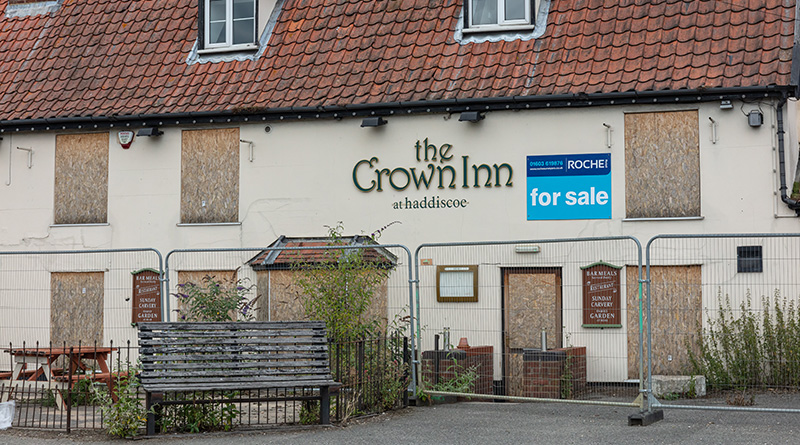Sharp Increase in Pub Insolvencies in Past 12 Months

There has been a sharp increase in the number of pub and bar insolvencies during the last year, a “tragic reflection” of the year’s economic challenges, a report reveals.
According to Insolvency Service data published by accountancy firm UHY Hacker Young, the number of pub and bar insolvencies in the last year rose from 438 to 725, a 66% increase.
Peter Kubik, partner at UHY Hacker Young said the number is a “worrying sign” given that “operators need to be busier than ever just to break even”.
Office for National Statistics (ONS) data shows 67 per cent of people are spending less on essentials, the firm said, which could be a contributing factor for any lack of footfall for pubs.
UK-wide average draught beer prices have increased 9 per cent from £4.23 in January to £4.62 in September, the firm said.
Kubik added: “The sharp rise in costs in the last eighteen months has been the final push into insolvency for many pub businesses, which were saddled with COVID-era debts.
“After enduring a huge drop in revenue during the pandemic, pub and bar companies are desperate to turn a profit. Instead, as we run up to the festive period, high inflation and interest rates is making this impossible for many owners.”
Many pub and bar owners are “eating into their savings”, Kubik said, in turn adding more pressures on the sector.
According to statistics released by the Insolvency Service earlier this year, during the second quarter of 2023 (comprising the months of April to June) saw more pub closures during a three month period than ever before with 223 closing this year, that’s over 18 a week.
The broke the previous record, which was only set in Q1 this year when 200 pubs called time for the last time.
Simon Jupp MP for East Devon and Chair of the All-Parliamentary Group on Hospitality and Tourism, has called on the Chancellor to take three clear actions on business rates in his upcoming Autumn Statement later this week to help the sector survive and grow going forward:
- Freeze the business rates multiplier
- Extend the 75% relief for hospitality for a further year
- Increase the cap the £2 million per business
In a letter to chancellor Jeremy Hunt he said: “As you know, hospitality has faced a sustained period of pressure, including high energy bills, rising wage costs, as well as a challenging recruitment environment. Evidence from UKHospitality shows that if the Government fails to act on business rates, hospitality businesses in the UK could suffer close to £1 billion being added to their overall business rates bill, with increases insurmountable for many.”
“The All-Party Parliamentary Group on Hospitality and Tourism, of which I Chair, recently heard from businesses, including Paulton’s Park and Amber Taverns, on the acutely detrimental impact it would have on their business if action is not forthcoming on this issue in the upcoming Autumn Statement. The response was clear that added costs will likely have to be passed onto consumers and would lead to business failures and job losses across the country.”
“From the evidence we received, businesses in the sector believe that the short-term measures outlined above would not only save a number of local and national businesses from closure but also enable others to invest and grow.”
“In the longer term, however, businesses we heard from are calling on the Government to consider structural changes to business rates to allow the high street to flourish.”
“The contribution of the hospitality sector in the UK is significant, generating 10% of total UK jobs, £140 billion in economic activity and £54 billion in tax receipts, thanks, in large to the vital support the sector received from Government during the Covid-19 pandemic.”
“At the coming Autumn Statement, the All-Party Parliamentary Group on Hospitality and Tourism is calling on you to act immediately to support the industry through what remains a challenging situation for many businesses by freezing the business rates multiplier and extending the 75% relief for hospitality for a further year. These steps would both protect and help many hospitality businesses to flourish in the years ahead.”
